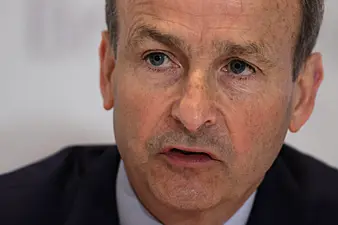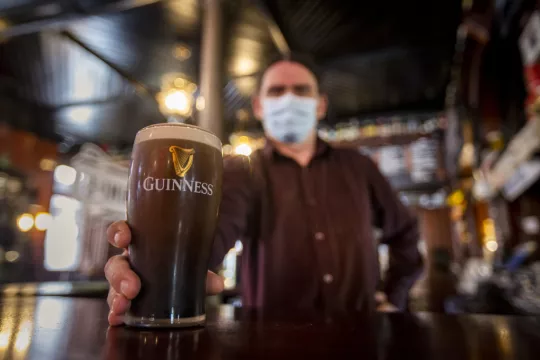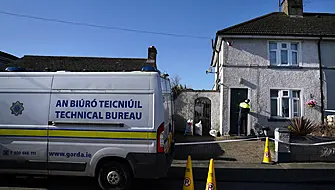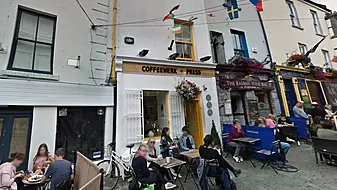New advice allowing the use of certain Covid-19 vaccines on younger age groups will have “little impact” on the stark models of coronavirus growth produced by the National Public Health Emergency Team (Nphet), according to an infectious diseases expert.
Dramatic increases of case numbers and deaths from the Delta variant in the modelling did not take into account changes made by the National Immunisation Advisory Committee (Niac) to allow those under 40 to receive AstraZeneca and Janssen vaccines.
It means the models that informed the Cabinet decision to delay the reopening of indoor hospitality, described as “grim” and “sobering” by Government sources, were somewhat out of date.
However, infectious diseases expert Professor Sam McConkey said he does not believe factoring in the new change to the vaccine rollout will have much of an impact on the models.
“It doesn’t make a huge difference to the outcomes – the reason is because most of those vaccinations are going to be given to people under 40 years, J&J and AstraZeneca,” he told Newstalk Breakfast.
“Most of the really bad outcomes that happen in the models and that happen in the real world, of course, are the people who are older than that, so it would certainly improve the situation, but only by a small amount.”
Vaccinated deaths explained
The worst-case scenario modelled by Nphet would see almost 700,000 cases of the virus over July, August and September, with as many as 2,170 deaths as the Delta variant becomes dominant. The most optimistic projection would see 81,000 cases and 250 deaths.
A member of Nphet, Professor Philip Nolan, explained in a series of posts to Twitter on Wednesday evening why growing case numbers would still lead to deaths and hospitalisations — despite a growing proportion of the population being vaccinated.
“A rise in cases will inevitably lead to hospitalisation and mortality, though the rates will be far less than we experienced without vaccination; nonetheless a long wave of disease leads to a significant number of adverse outcomes,” he said.
“While 70-80 per cent of cases will be in people under 40, there will be a lot of infections and a lot of adverse outcomes in people over 40; about 70 per cent of the hospitalisations and over 99 per cent of the deaths would be in people over 40.
Why would this happen if everyone is vaccinated? Vaccines offer extraordinary protection, but not perfect. We have almost 500,000 people aged 70 and over; even if the vaccine is 95% effective in preventing severe disease, 25,000 people remain vulnerable. 26/36
— Professor Philip Nolan (@PhilipNolan_SFI) June 30, 2021
“Why would this happen if everyone is vaccinated? Vaccines offer extraordinary protection, but not perfect. We have almost 500,000 people aged 70 and over; even if the vaccine is 95 per cent effective in preventing severe disease, 25,000 people remain vulnerable.”
Prof McConkey said that he had examined the models produced by Nphet and understands the Government decision to pause the reopening of indoor hospitality from July 5th.
The professor said that there were other public health policy routines that could be implemented, such as antigen testing, which was successful in identifying positive cases.
Antigen testing could be used for large-scale sporting and music events, he said, but he cautioned that some of the brands that had been used earlier in the pandemic did not live up to the manufacturer’s claims.
When asked about religious services such as baptisms, first communions and confirmations, Prof McConkey said the problem was not with the service itself, but with social events held afterwards, so he agreed with the decision to defer.
Reopening plans
On the same programme, Minister for Housing Darragh O’Brien also called for antigen testing to be used more widely.
Mr O’Brien said he believed that antigen testing had a key role to play as part of the “corona pass” system while the vaccination programme was expanded.
All options are on the table when it comes to plans to reopen indoor hospitality with a potential “corona pass” system, according to the chief executive of the Restaurants Association of Ireland (RAI).

Adrian Cummins said his association had a “full and frank” conversation with the Taoiseach, Tánaiste and Minister for Health on Wednesday during a two-hour meeting.
Amid continuing pressure, a Government delegation led by Mr Martin has told representatives of the hospitality industry that a mid-July reopening of indoor hospitality might still be possible if new data from the UK indicated lower hospitalisation and death rates from the Delta variant.
It comes as Taoiseach Micheál Martin was told last night by a party member that Fianna Fáil was now “toxic” and “irrelevant” to young people, who were “up in arms” amid the potential return of indoor dining for vaccinated people only.
A Co Kerry restaurateur has meanwhile revealed how he received 500 cancelled bookings for throughout the summer – in a single day – after the Government delayed the return of indoor dining.







